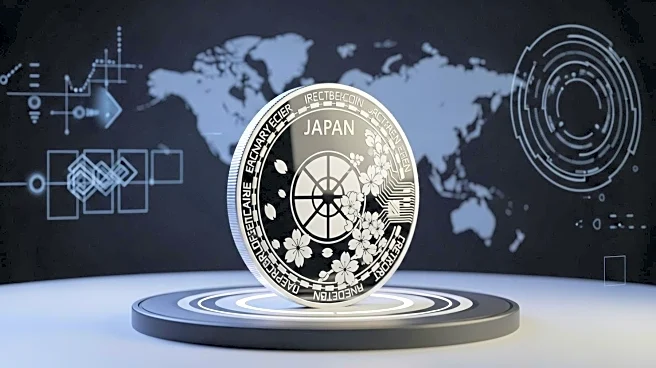What's Happening?
Japan is emerging as a leader in the stablecoin market by leveraging regulatory clarity and robust market infrastructure. The Financial Services Agency (FSA) has reclassified crypto assets as 'financial products,' facilitating institutional adoption. This regulatory shift, along with a favorable tax environment, positions Japan as a prime destination for institutional capital. The launch of JPYC, a yen-backed stablecoin, further solidifies Japan's position. JPYC is fully collateralized by Japanese government bonds and bank deposits, ensuring stability and boosting demand for JGBs. The FSA's approval of JPYC up to ¥1 trillion over three years highlights its potential as a bridge between traditional finance and blockchain systems.
Why It's Important?
Japan's approach to stablecoins offers a model of regulatory clarity and stability, contrasting with the US's regulatory challenges. By providing a secure and compliant environment, Japan attracts international firms and institutional investors seeking reliable entry points into the crypto market. This development could shift the global stablecoin landscape, with Japan setting standards for transparency and security. The emphasis on sovereign-backed collateral ensures trust and stability, potentially influencing other countries to adopt similar frameworks.
What's Next?
As Japan finalizes its 2026 reforms, JPYC is expected to gain traction, potentially outperforming global peers. The country's regulatory framework and market infrastructure advancements will continue to attract international firms and investors. Partnerships with global players like Ripple and Circle will enhance Japan's position as a digital finance hub. The FSA's creation of the Crypto-Asset Intermediary Service Providers (CAISPs) license will further reduce compliance costs for institutional players, fostering growth in the stablecoin market.










